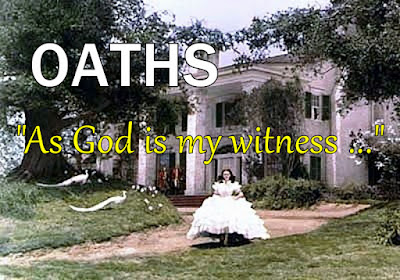A STORY OF HEALING

I have told my parishioners that God heals, not in ways we want, but in the ways we need and often through unexpected means.
I also tell them that there is nothing that God cannot redeem and bring healing from it.
I believe these are both true, because I have experienced these truths in my life. The following is one such experience, and surprising to me, the healing came through telling stories.
In the fall of 2013, I found myself serving a new church in a new community two and a half hours away from our home and my husband's new job, the dream job that I had prayed for him. The distance between us is challenging, but with my husband's former work, he often had long-term assignments working all over the state and the country. Over the years, we have developed our own strategies for keeping our relationship strong. Truth be told, this would not be the first time I'd ever moved to a new place and had to rebuild my social and professional networks.
While I expected to grieve the move, the anger surprised me. I seethed at times, and the focus was not the move but my mother.
No family is completely normal, and to be honest, compared to the dysfunction of other family situations, it could have been a lot worse. I guess. Due to the alcoholism of an older sibling, and the chronic childhood illnesses of my little sister that resulted in many trips to doctor offices and emergency rooms, I found myself taking care of my parents by being the good child who behaved herself in public and did well in school. My parents bragged that they never had to worry about me, I took care of myself and faded into the background. I wish they had worried more about me. I remember feeling lonely and sad, and as good as I was, it seemed like I had become forgotten.
As the years went by, my mother emotionally abandoned each of her older daughters and became enmeshed with my younger sister and her addiction. In her last years, my mother isolated herself and my father from us and from one another. By the time she died at the age of seventy-three, my husband and I had moved away to another state, and I dealt with the pain of the relationship with my mother and my family by having as little contact with them as possible.
After she died, I began the healing process. Over the years, I was blessed with the gift of two Christian counselors that supported my faith journey and God's healing grace. I reached a place of wholeness and peace and forgave my mother. I thought the issues had been dealt with, and I could move on.
That's why the anger surprised me. Through the stories of others, God revealed that I was still looking at my relationship with my mother through the understanding of a child. As a child, I had neither the knowledge nor the life experience to understand my mother's story. Our relationship, even though she had passed on, needed to be healed, and the only way I could see how to do that was to tell myself my mother's story from my adult perspective.
For whatever reason, when I was a child, my mother made me her confidant, sharing stories with me that I could not fully interpret at the time.
When my mother was around eight, my grandmother went into a deep depression that lasted well over a year after her four-year old son was accidentally shot and killed. She spent most of the time in bed, speaking to no one. My mother felt her mother had abandoned her.
In my mother's teens, her father had decided that she was going to get herself into trouble, become come pregnant out of wedlock and become the shame of the family. He constantly berated my mother about it. Maybe that was why she rushed into marriage with an on again, off again boy friend. Their marriage was very unhappy, and my mother left him. She fell into disgrace and disfavor in her family and the local community because she was a divorced woman. I believe, from what she shared with me, that she suffered bouts of depression, and may be the reason she lost custody of one of her daughter.
During the World War II, like many women at the time, she easily found work in traditionally male jobs. She felt empowered and fulfilled in her work, and she began to come out of the depression and started making plans about becoming a hair dresser.
She met and married my father near the end of the war, and being sixteen years her senior, she was accused of being a gold digger. She faced humiliation and rejection as minister after minister refused to marry my parents because she had been divorced. They finally found a Church of Christ pastor who agreed to perform the ceremony. Looking back, I wonder if this was when my mother lost her faith as well as her dreams and goals because my father forbid her to work outside of the home.
My father was was a very traditional "head of the household," and very much the perfectionist. I know my parents loved each other very much, but he was not an easy person to live with. When I was a teenager, her depression was becoming more apparent. My parents grew up with the idea that mental illnesses were "bad" and, at the time, there weren't a lot of resources available in the small town, farming community we lived in.
I have ministered to women like my mother, women with family and personal histories with depression and other mental illnesses. Women who felt isolated, abandoned and trapped by their circumstances.
Women who had become enmeshed in the life of an addicted child.
As an adult and a pastor, I now had an understanding of my mother's pain and why she was the woman and mother she was.
After my mother's death, my father and I developed a much better relationship on an adult level. It took some time to get there, but what we had a the time of his death is a gift I cherish. As I told my mother's stories, I realized I was grieving not having the same kind of relationship with her.
We never went shopping together. We never had a mother-daughter outing, like a meal out, just the two of us and a movie. We never went to a salon and got our hair and our nails done.
When she was happy, she sang her favorite big band songs of the forties as she worked in the kitchen. For me, there is great joy in dancing, and when I'm in a good mood, I'll sing along to my favorite music and dance around the kitchen. We never got to do that together.
Remembering her, I sang the songs (or as much as I could remember) she sang, and in my imagination, we have danced together around my kitchen. We talked the way I longed we could have while she was alive, easy conversations free of tension. I took her memory out to lunch and on shopping trips.
One afternoon, after a very satisfying time in one of my favorite department stores, I went to a movie, "August: Osage County," a movie very much in the style of Tennessee Williams, including a very dysfunctional and broken family. In my mind, she sat in the seat next to me, her hand over mine. Part way through the movie, I heard her whisper, "I'm so sorry honey. Was it as bad as this (meaning our relationship)."
"No, Mom, it wasn't," my mind whispered back.
I felt at peace and comfortable with my mother for the first time in my life.
Soon after that, I had a dream. In it, I was walking down the hallway in my home toward my bedroom. Out of the guest bedroom stepped a fawn. There was no fear as I approached it, and I put out my hand and began stroking its head. From the same room, a doe (I knew it was the fawn's mother) came out. She stood close at my side and nudged her way under my arm.
I woke up crying. I, the child, and I, the adult, had been reconciled with my mother.
I believe that God heals, not in ways we want, but in the ways we need and often through unexpected means. I also believe that there is nothing that God cannot redeem and bring healing from it. I belive it because I have experienced the truth of it.



Comments
Post a Comment